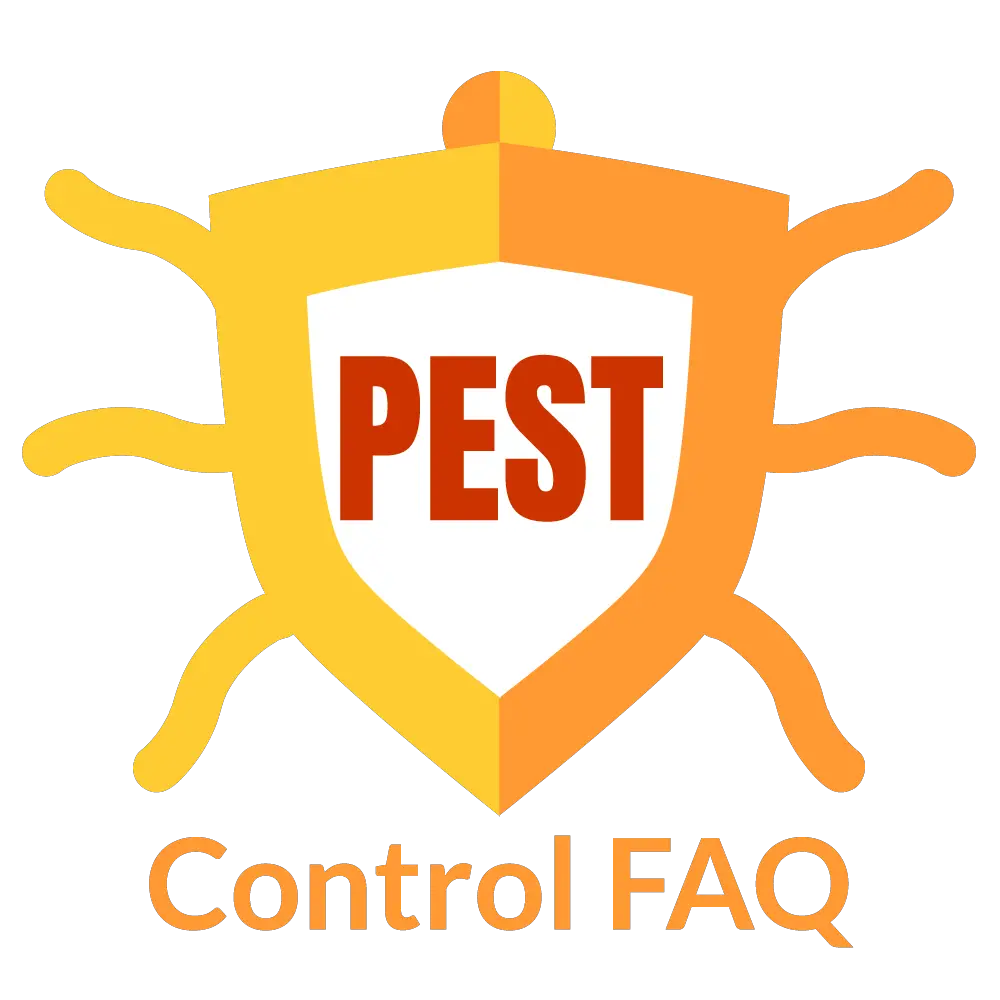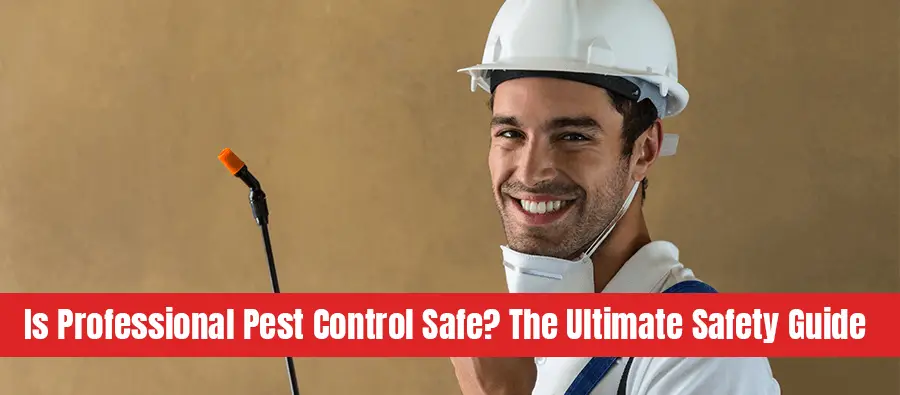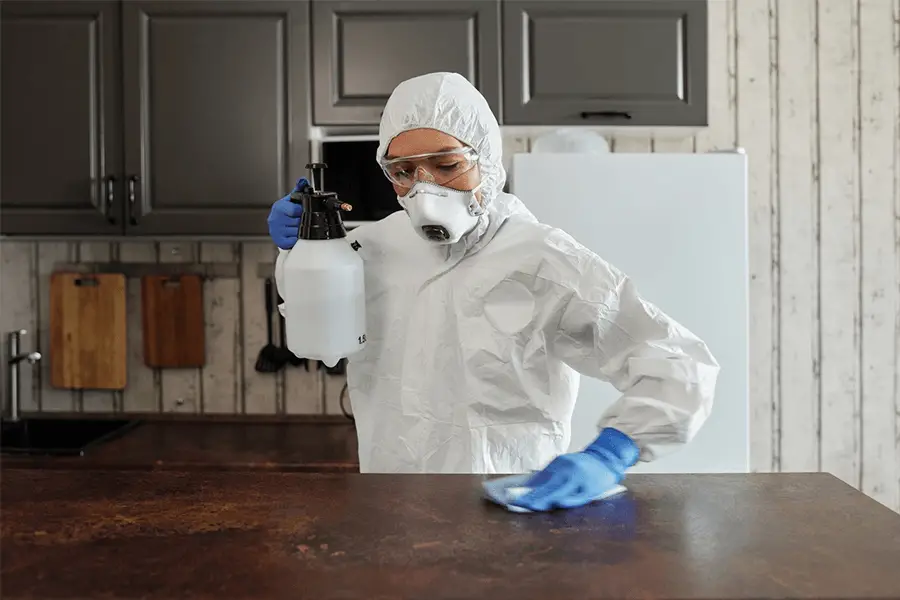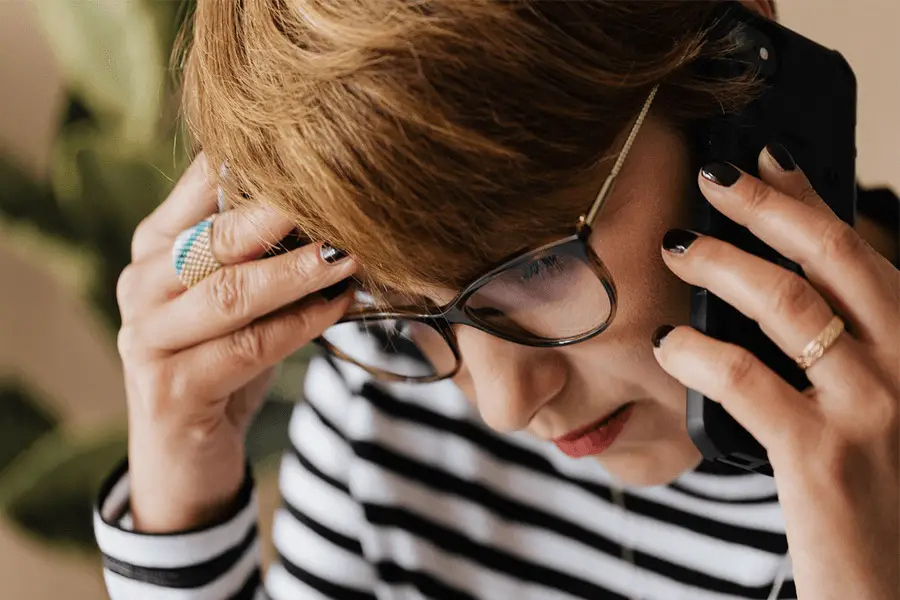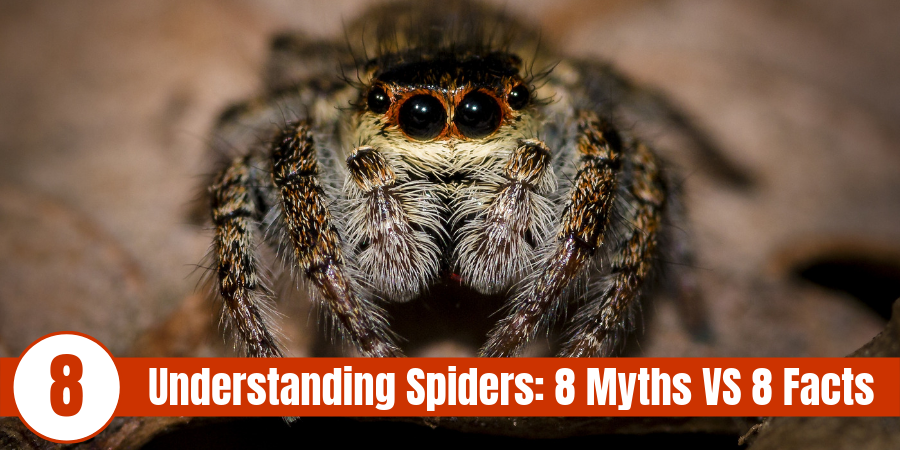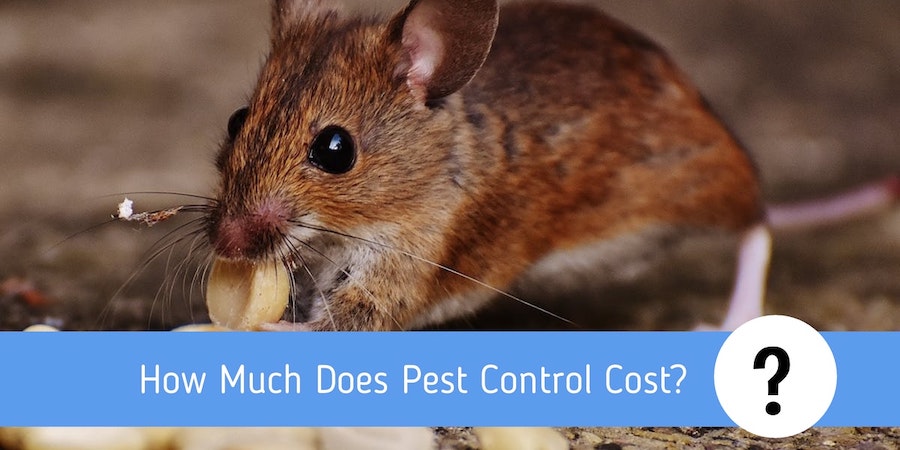It’s normal to feel uncomfortable with pests in your home. You just want to get over the infestation. Now you consider hiring a professional pest control service. While they assure you of a pest-free home, you wonder if it’s safe for you, your family, and your environment.
Is professional pest control safe? A reputable pest control service will take every step to minimize risk for their customers. You may have concerns when you hire a pest control company. However, your safety strongly depends on the exterminators performing the pest control service.
Your safety is the primary thing to consider before contracting a pest control service. In this article, we provide you with an ultimate safety guide for hiring pest control professionals. We talk about safety in terms of the pesticides used, and in terms of hiring a pest control company.
Table of Contents
Are pesticides safe?
You may be quick to assume that some pesticides are safe, and you can easily use them yourself, while others are harmful. You may not know that all pesticides have the potential to be dangerous.
This includes those pesticides that are evaluated as low in toxicity or organic in nature. While these pesticides may pose minimal risks, the potential risk of these types of chemicals are revealed when you come in contact with too much of the substance.
Pesticides are not 100% safe. They are meant to be toxic to pests, but they can also be toxic to humans. There’s always a level of risk associated with using pesticides, but it can be minimal if you take precautions and follow instructions.
Although pesticides are heavily regulated by agencies like the USDA and EPA, the chemicals can still be health-threatening if not used properly.
Informed and seasoned pest control professionals understand what’s safe to use, and in what quantity to prevent intoxication. They’ll be in the best position to guide you, and give you safety precautions. This is why it’s recommended that you invite them to perform pest control.
There are pesticides with minimum risks and others with maximum risk. The level of toxicity of the ingredients is what determines which pesticides are safe. The EPA has identified and classified them based on the active ingredients in their formulation. Let’s talk a little about them.
Minimum vs. high-risk pesticides
Minimum risk pesticides pose minimal threat to humans, animals, and the environment. Some of these are their common active ingredients: citronella oil, sodium lauryl sulfate, sodium chloride, lemongrass oil, thyme, and potassium sorbate.
Other pesticides with active ingredients that have higher toxicity levels are Myclobutanil, Permethrin, Methoprene, Dicamba quinclorac, Lambda-cyhalothrin, Bifenthrin, Chlorothalonil, Imidacloprid permethrin, and Esfenvalerate.
These substances can cause severe and/or chronic health issues for people who are exposed to them. They should not be used in large quantities in one sitting.
What the warning label implies
Always read the label of the pesticide container the company intends to use. Caution mostly indicates a lower level of toxicity. Warning implies moderate toxicity, while danger shows a high level of toxicity.
You must ask questions when you feel confused. Don’t feel shy to ask the professionals what they are using to treat your home. Ask for the name of the active ingredients and observe safety precautions accordingly.
Understanding the risk
The possibility of suffering some health effects as a result of using a product is called pesticide risk. The risk posed by any pesticide depends on which pesticide is being used, how much is applied, how frequently it is applied, and who or what comes in contact with the pesticide.
Your pesticide risk depends on both the toxicity of the product and the amount of exposure. Exposure occurs when a pesticide is eaten, breathed in, or touches the skin. For any pesticide to affect you, you must have been exposed to it in one way or another. It could be through any of these:
- Inhalation (most common route of exposure)
- Ingestion
- Dermal exposure
- Residue on surfaces, items of clothing, and equipment left uncovered
A very toxic pesticide used near you will not impact you if you are not exposed to it. However, there are certain groups of people who are more sensitive to these chemicals.
You may want to know how safe pesticides can be for elderly people, pregnant women, children, babies, and people with certain health conditions. Their risk can be significantly minimized by selecting less toxic pesticides and reducing exposure.
So, what’s my risk?
You should know that your risk is based on the level of exposure and toxicity. Your risk increases as the amount of exposure or the toxicity of pesticides increases.
A reasonable pest control company will inform you of how long you’ll have to stay out of your home. This minimizes the chances of exposure as much as possible.
They will also let you know what you have to do before and after pest control. They’ll instruct you on how you’ll clean up after the procedure.
Possible effects of exposure
Exposure to pesticides can either be mild, moderate, or severe. This could lead to poisoning or body reactions depending on the toxicity level.
The side effects of the exposure might not occur instantly. You might start to notice them after a few hours. Headaches, dizziness, sweating, nausea, skin and/or eye irritation, diarrhea, loss of appetite, restlessness, and insomnia are some side effects of mild exposure.
Moderate poisoning includes symptoms such as vomiting, excessive salivation, coughing, abdominal pain, and blurry vision.
Sometimes, the side effects can be quite serious. In this case, you’ll experience inability to breathe, small or pinpoint pupils, loss of body movement and reflexes, unconsciousness, and a rapid heart rate.
Long-term exposure may also lead to severe conditions like leukemia, cancer, neurological problems, reproductive and fertility issues, birth defects, and death.
I know how scary all these side effects may seem. But, these pesticides can be used safely. I’ve informed you about the side effects so that you know how crucial it is to be careful while handling pesticides.
How to minimize the risk
Be observant:
If pesticides are being applied in your home, try to find out things like what is being applied, and how much will be used. This helps you determine your risk. Step out of the area if you need to do so. Sometimes, exposure can happen even if you do not smell pesticides.
Reduce the exposure as much as possible:
Use of protective equipment (like gloves, nose masks, goggles, etc.) and leaving your house for a certain amount of time. These reduce your chances of having health problems.
Follow the instructions of the pros:
Normally, the pros will give you instructions. They might ask you to stay out or wear protective materials. Do not take their instructions for granted. They help to minimize the risk.
What do you do if you are exposed to pesticides?
Sometimes you take all the necessary precautionary steps and still get exposed to pesticides accidentally.
Here is what to do if you, your family member, or pets get exposed to pesticides:
- First, it’s important to read the labels on pesticide containers. Follow the first aid instructions indicated on the bottle.
- Another safety measure is trying to determine how the affected person was exposed to the pesticide.
- If you find out that it was skin contact, make sure to wash the affected area with soap and running water.
- If it was inhaled, let the person get some fresh air.
- In case of ingestion, serious exposure, or if you notice adverse side effects you’ll need to immediately reach out to your healthcare provider, Get Poison Control Help Online or Call 1-800-222-1222.
Is hiring a pest control company safe?
You now know the risks of pesticide exposure. Let’s talk about the risk of hiring a pest control company. While there are several advantages to calling them, you may have some concerns.
First, why call the professionals?
- Licensed business: They are legally authorized to handle and use pesticides. In several parts of the world, pest control companies are certified by agencies. They need a license to operate. This special authorization is proof that these companies can effectively apply pesticides and they know safety rules.
- They are experts: Professionals are by far more knowledgeable of different types of pests, their hiding places, and how to exterminate them effectively.
- Solution planning: They know the best way to manage or create plans to solve your infestation issue.
- Minimized risk: They know the safest ways to handle pesticides.
- Guidance & help: They are in the best position to give you tips and guidance to prevent pest infestation. They’ll help answer all of your burning questions.
Still not convinced? Here are safety guidelines
Hiring a pest control company doesn’t guarantee 100% safety. There are still several factors you’ll have to consider. These factors include what happens before, during, and after the treatment. You can work hand in hand with the professionals to achieve a safe pest control session.
Before the pest control procedure:
- You can speak with the exterminators and learn about the pesticides they intend to use. Communicate freely about your health concerns. Let them know if you have any special conditions such as allergies, pregnancy, etc.
- Remember, you have the right to demand a safer product/alternative. You can talk to them about using a low-risk pesticide.
- Make necessary plans ahead. Decide where you’ll be taking your pets (if you have any). How you’ll get things that are exposed (cooking utensils, plates, and food items, etc.) covered.
- Inform the neighbors. This helps them observe precautions, especially if this activity is happening outdoors.
- Ensure you cover everything or put everything away that could get exposed to pesticides such as cooking utensils, plates, and food items, etc.
After pest control safety tips:
- Stay away from the environment for at least 4-6 hours. Be prepared to take your pets with you. Your pest control professionals can give you more instructions.
- Make sure you have shut the doors and the windows if the pesticide was applied outside. If it was applied indoors, open up the doors and windows once you come back in.
- Rewash and clean utensils and other things that were covered during the pest control. They might have collected some of the pesticides.
How to select a reputable pest control company
Many things come to your mind when you want to hire the services of a pest control company. Some of the questions are: How am I sure that they’ll do a good job? What if they steal from us? Would they guarantee my safety?
While you can’t be sure, you can take your time to evaluate the key factors before choosing a pest control service.
Qualifications
You want to find out if the company is licensed. Make sure the license is the right classification for the job you want to deal with. Make sure the certification is current. You can check this by contacting the State Pesticide Regulatory Agencies.
Feel free to ask questions. Ask if the company would repay you for any damage or loss caused by their employees. Ask if they have certified entomologists. You want to be sure they have products, techniques, and standards that’ll get the job done and still ensure safety.
Customer service
This is one of the most important things to consider. You want to get exterminators that listen to your concerns and address them with respect. You might love to ask certain questions. Will they be willing to listen?
Is the company ready to discuss the products and treatments suggested for your home treatment? They should be able to discuss the kind of pests to be controlled and the active ingredient in the pesticides to be used.
They should be able to give you special instructions to ensure safety. If they don’t answer your questions, don’t hire them.
Reputation
You need to check out the track record of the company you want to choose. Don’t rely on the information given by the company’s salesperson. Inquire from family, friends, neighbors, and coworkers what pest companies they use and recommend.
You can also call your State Pesticide Regulatory Agencies. They’ll tell you about any form of violations, or complaints about the company you intend to select. Another way to inquire about the reputation of a company is by checking if it is affiliated with a professional pest control association.
This kind of association keeps its members informed of new advancements in pest control methods, safety, research, and regulation. Members of such associations also have a code of ethics. This shows the level of commitment of that company.
Check for guarantees
A company that is confident about its work has guarantees. But ensure that you maintain your part of the bargain. Prevent altering conditions, as this may thwart the guarantee. Some companies have special conditions for which they make guarantees. Take note of these.
Years of experience
The years of experience of a pest control company counts as well. This shows if they can get your job done accurately. Find out how much experience the company has with treating the pest problem you want to deal with.
Value & cost
Cost is another factor you’ve got to consider. Get estimates from several companies. Learn about their rates and terms. Find out if they’ll want you to get into a long-term contract. If yes, how much? Check if the costs equal the value they provide.
Safety
This is a very important aspect. Do they observe safety precautions? Do they take steps to reduce environmental risks?
Do they have insurance? Are they serious about protective equipment? What measures do they take to prevent accidents?
The key is always to ask questions, you want to be in the safest hands possible.
Insurance
This is another point you need to pay attention to. Find out if the company has a provision for insurance. Get the proof on paper. Check if their insurance covers you, their employees, and your property.
This ensures that the company can cater to any form of sudden and accidental pollution. This gives a certain level of protection should an accident occur during the pest control procedure. Not all states mandate pest control companies to buy insurance. You should consider an insured company first.
Assess the results
Don’t feel shy to contact the pest control company if anything didn’t go well with the pesticide application. Are you experiencing any side effects? Do you still find pests around? Relate your problem to them. You deserve the best possible results.
